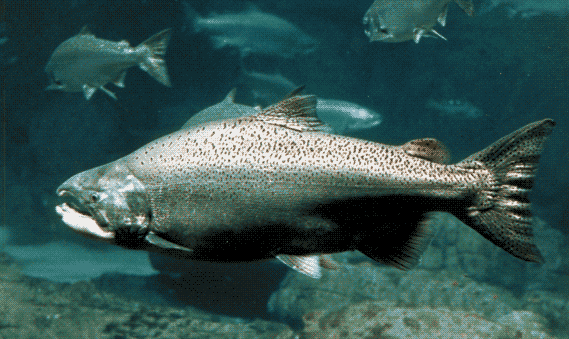WASHINGTON, DC, – Today, the Salmon Aquaculture Dialogue announced the completion of global standards for salmon farming. The voluntary standards are the result of a comprehensive multi-stakeholder process that sought innovative approaches to addressing the industry’s environmental and social impacts. The Dialogue is handing over the standards to the Aquaculture Stewardship Council (ASC), which will oversee certification of farms.

“We are faced with the challenge of feeding seven billion people on a finite planet with limited resources. To succeed, food production systems have to change, including improvement in the salmon aquaculture industry” said Jason Clay Senior Vice President of Market Transformation at World Wildlife Fund (WWF), who helped to initiate the Dialogue. “Engaging with multiple stakeholders to develop environmental and social standards and voluntary certification schemes for a range of commodities is at the core of WWF’s work to transform markets and, ultimately, conserve the world’s biodiversity.”
The new standards are intended to address the key negative environmental and social impacts associated with salmon farming and allow for the economic viability of the industry, which has grown by more than 50% by volume since 2000. Impacts addressed through the standards include water pollution, sourcing of feed ingredients, disease transmission between farmed and wild salmon and labor issues on farms. “The standards will challenge the industry to improve in many areas, and they are one of many tools that must be used to ensure the health of the environment, industry, and society.” said Hernan Frigolett from Fundación Terram and a Dialogue Steering Committee member.
“The final standards represent an extraordinary accomplishment, and sets a new and unprecedented standard for responsible farmed salmon production.” said Petter Arnesen from Marine Harvest, who is a member of the Dialogue’s Steering Committee. “I look forward to seeing the results of their implementation and hope that retailers and customers will value the efforts of farms that choose to work towards certification. As an industry we are often challenged on lack of transparency and data from farms, and these standards require an unprecedented amount of transparency. Implementing the standards will therefore provide useful documentation on current environmental and social status of salmon farms and the efficacy of the standards.”
The standards-development process began in 2004 and has included more than 500 farmers, conservationists, scientists, seafood buyers, government officials, Aboriginal people and other salmon farming stakeholders.
The Steering Committee is handing the final standards and a draft audit manual to the ASC. The ASC will oversee field-testing and finalization of the audit manual. The ASC will be responsible for working with independent, third-party entities to certify farms that are in compliance with the standards being developed by participants of the eight Aquaculture Dialogues. Two members of the Steering Committee sit on the ASC Technical Advisory Group, which helps oversee implementation of the standard.
The Steering Committee that manages the salmon Dialogue is composed of individuals from both conservation and industry sectors and includes representatives from Canadian Aquaculture Industry Alliance, Coastal Alliance for Aquaculture Reform, Fundación Terram, Marine Harvest, Norwegian Seafood Federation, Pew Environment Group, SalmonChile, Skretting, and WWF.
For more information about the salmon Dialogue, go to www.worldwildlife.org/salmonstandards
Nick Conger
[email protected]
















